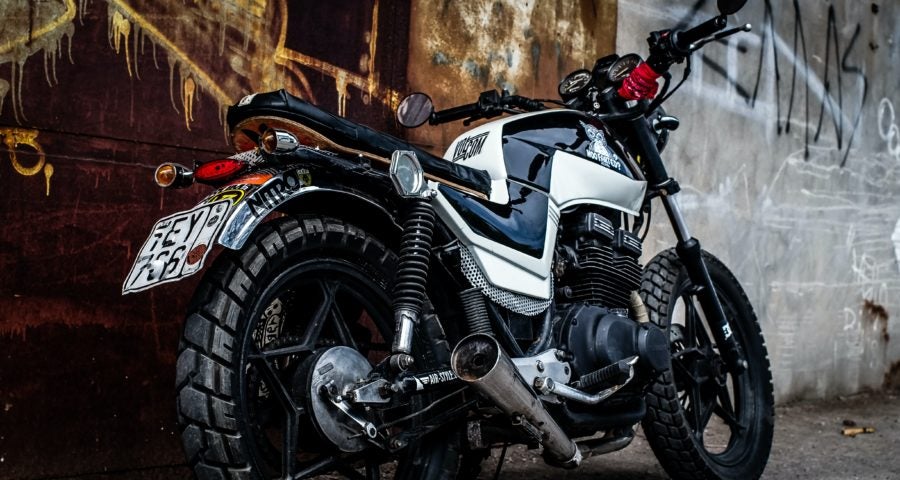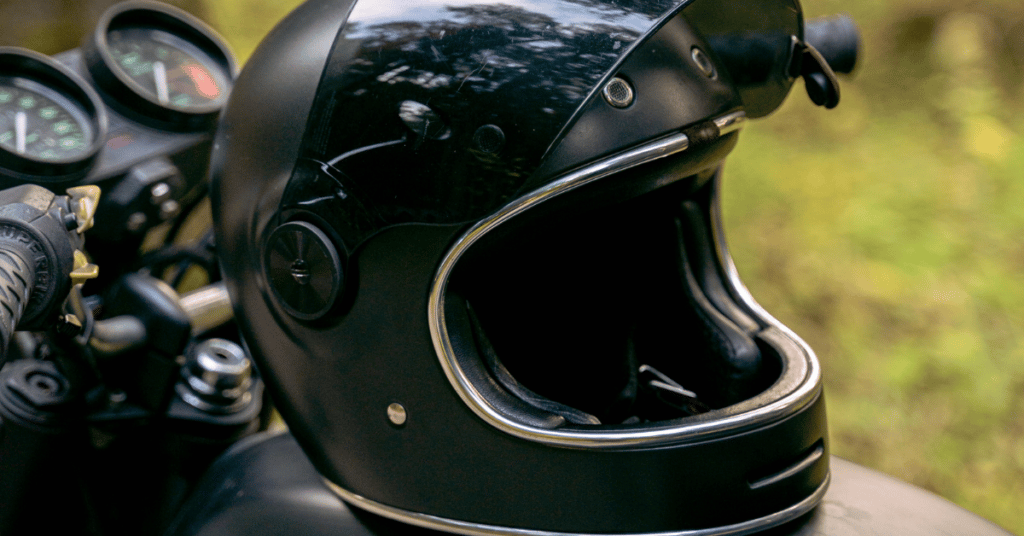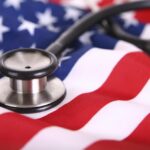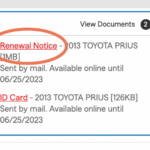Does Washington State require motorcycle insurance? Absolutely! In the Evergreen State, riding without proper insurance coverage is not only unwise but also illegal. The state mandates a minimum level of liability insurance for all motorcycle riders, ensuring financial protection for yourself and others in the event of an accident. This article delves into the specifics of Washington’s motorcycle insurance requirements, exploring the types of coverage available, factors influencing premiums, and the process of obtaining insurance. We’ll also provide essential safety tips for navigating Washington’s diverse roads and weather conditions.
Washington State’s motorcycle insurance laws are designed to safeguard riders and the public, promoting responsible motorcycling practices. By understanding the requirements and exploring available coverage options, riders can make informed decisions to protect themselves and their investments. This article serves as a guide to navigate the intricacies of motorcycle insurance in Washington, empowering riders to make informed choices and enjoy the freedom of the open road with peace of mind.
Washington State Motorcycle Insurance Requirements
In Washington State, operating a motorcycle without proper insurance is illegal. The state mandates all motorcycle owners to carry specific types of insurance coverage to protect themselves and others on the road. This requirement ensures financial responsibility in case of accidents, safeguarding both the motorcycle owner and any parties involved.
Minimum Liability Coverage
Washington State law requires all motorcycle owners to carry a minimum amount of liability insurance. This coverage protects you financially if you cause an accident that results in injuries or property damage to another person. The minimum liability coverage requirements are:
- $25,000 per person for bodily injury
- $50,000 per accident for bodily injury
- $10,000 per accident for property damage
This means that if you cause an accident that results in injuries to another person, your insurance company will pay up to $25,000 per person and up to $50,000 in total for all injuries sustained in that accident. For property damage, your insurance company will pay up to $10,000 per accident.
Penalties for Operating Without Insurance
Operating a motorcycle without the required insurance in Washington State can result in serious penalties. These penalties can include:
- Fines: You may face a fine of up to $1,000 for operating a motorcycle without insurance.
- License Suspension: Your driver’s license may be suspended until you provide proof of insurance.
- Impoundment: Your motorcycle may be impounded until you provide proof of insurance.
- Court Costs: You may be required to pay court costs associated with the violation.
- Increased Insurance Premiums: If you are caught driving without insurance, you may face higher insurance premiums in the future.
It is important to note that even if you are not involved in an accident, you can still be penalized for operating a motorcycle without insurance. Police officers may conduct random checks to ensure that all vehicles, including motorcycles, are properly insured.
Types of Motorcycle Insurance Coverage
In Washington State, motorcycle insurance is a necessity. You can choose from various coverage options to tailor your policy to your specific needs and budget. Understanding the different types of coverage and their benefits is crucial to making an informed decision.
Liability Coverage, Does washington state require motorcycle insurance
Liability coverage is the most basic type of motorcycle insurance. It protects you financially if you cause an accident that injures someone or damages their property. It covers the other party’s medical bills, lost wages, and property damage. In Washington State, liability coverage is required by law.
- Bodily Injury Liability: This coverage pays for the medical expenses, lost wages, and pain and suffering of the other party involved in the accident. It is usually expressed as a per-person limit and a per-accident limit, for example, $25,000 per person/$50,000 per accident.
- Property Damage Liability: This coverage pays for damages to the other party’s vehicle or property. It is usually expressed as a per-accident limit, for example, $25,000 per accident.
Collision Coverage
Collision coverage pays for repairs or replacement of your motorcycle if it’s damaged in an accident, regardless of who is at fault. This coverage is optional, but it’s highly recommended if you have a financed or leased motorcycle.
- Deductible: You will have to pay a deductible, which is a fixed amount, before your insurance company pays for the repairs. The higher the deductible, the lower your premium.
- Actual Cash Value (ACV): Your insurance company will pay the actual cash value of your motorcycle, which is its current market value, minus depreciation.
Comprehensive Coverage
Comprehensive coverage pays for damages to your motorcycle caused by events other than collisions, such as theft, vandalism, fire, or natural disasters. This coverage is also optional, but it’s recommended if you have a newer or high-value motorcycle.
- Deductible: You will have to pay a deductible before your insurance company pays for the repairs.
- Actual Cash Value (ACV): Your insurance company will pay the actual cash value of your motorcycle, which is its current market value, minus depreciation.
Uninsured/Underinsured Motorist Coverage
Uninsured/underinsured motorist (UM/UIM) coverage protects you if you are involved in an accident with a driver who doesn’t have insurance or has insufficient coverage. This coverage pays for your medical expenses, lost wages, and pain and suffering.
- Uninsured Motorist Coverage: This coverage pays for your damages if you are hit by a driver who doesn’t have insurance.
- Underinsured Motorist Coverage: This coverage pays for the difference between your damages and the other driver’s liability coverage if it’s not enough to cover your losses.
Factors Affecting Motorcycle Insurance Premiums

The cost of motorcycle insurance in Washington State is influenced by a variety of factors. These factors are categorized into different aspects, such as rider experience, motorcycle type, and driving history, and each can significantly impact your premium. Understanding these factors can help you make informed decisions about your motorcycle insurance and potentially save money.
Rider Experience
Your experience as a motorcycle rider is a crucial factor in determining your insurance premium. Insurance companies consider your riding history and the number of years you have been riding a motorcycle. The logic behind this is that more experienced riders tend to have a lower risk of accidents.
- New Riders: If you are a new rider, you can expect to pay higher premiums. This is because insurance companies perceive new riders as having less experience and therefore a higher risk of accidents.
- Experienced Riders: Riders with several years of safe riding experience often qualify for lower premiums. Insurance companies reward experienced riders with lower rates, reflecting their reduced risk profile.
Motorcycle Type
The type of motorcycle you own also influences your insurance premium. Insurance companies consider the motorcycle’s make, model, engine size, and safety features when determining your rates. Some motorcycles are considered higher risk due to their performance capabilities or design, while others are seen as safer and more reliable.
- High-Performance Motorcycles: Motorcycles with powerful engines, high speeds, and aggressive designs are often associated with a higher risk of accidents. As a result, insurance companies may charge higher premiums for these types of motorcycles.
- Cruisers: Cruisers, known for their comfort and relaxed riding style, are generally considered lower risk motorcycles. They often have lower insurance premiums compared to high-performance bikes.
- Safety Features: Motorcycles equipped with safety features like anti-lock brakes (ABS) or stability control can reduce your insurance premium. These features contribute to safer riding and potentially lower accident risks.
Driving History
Your driving history, including any accidents or traffic violations, plays a significant role in determining your motorcycle insurance premium. Insurance companies consider your driving record to assess your risk as a driver.
- Accidents: Having a history of accidents, especially if you were at fault, can significantly increase your insurance premium. Insurance companies perceive drivers with accidents as higher risk and may charge higher rates to reflect this.
- Traffic Violations: Traffic violations, such as speeding tickets or reckless driving, can also impact your insurance premium. These violations indicate a higher risk of accidents and may lead to increased insurance costs.
Other Factors
In addition to rider experience, motorcycle type, and driving history, other factors can affect your motorcycle insurance premiums. These include:
- Age: Younger riders often face higher premiums due to their perceived higher risk of accidents. Older riders may qualify for lower premiums as they tend to have more experience and a lower risk profile.
- Location: Your location in Washington State can impact your premium. Areas with higher traffic density or a higher rate of motorcycle accidents may have higher insurance premiums.
- Credit Score: In some cases, insurance companies may consider your credit score when determining your premium. A good credit score can potentially lead to lower insurance rates.
Obtaining Motorcycle Insurance in Washington State: Does Washington State Require Motorcycle Insurance

Securing motorcycle insurance in Washington State is a straightforward process. The state requires all motorcycle owners to have liability insurance, and you can obtain coverage through various insurance providers. The following steps Artikel the process of obtaining motorcycle insurance in Washington State.
Steps to Obtain Motorcycle Insurance
- Gather Information: Before contacting insurance providers, collect necessary information such as your motorcycle’s year, make, and model, your driving history, and any relevant details about your motorcycle usage. This information helps insurers determine your insurance premium.
- Compare Quotes: Contact multiple insurance companies to obtain quotes for motorcycle insurance. Use online comparison websites or directly contact insurers to request quotes. Compare the quotes based on coverage options, premiums, and deductibles.
- Choose an Insurance Provider: After comparing quotes, select an insurance provider that offers the best coverage and price. Consider factors like the insurer’s reputation, customer service, and claims handling process.
- Provide Required Information: The chosen insurance provider will require you to provide personal information, such as your name, address, and date of birth, as well as details about your motorcycle and your driving history. You may also need to provide proof of ownership, such as your motorcycle’s title or registration.
- Pay Premium: Once your application is approved, you’ll need to pay the insurance premium. Payment options may include online payments, credit card payments, or checks.
- Receive Policy: After paying the premium, you’ll receive your insurance policy, which Artikels your coverage details, premium amount, and other important information.
Role of Insurance Brokers and Agents
Insurance brokers and agents play a vital role in helping individuals obtain motorcycle insurance in Washington State. They act as intermediaries between insurance companies and individuals, providing guidance and assistance throughout the insurance process. Here’s how they can help:
- Compare Quotes: Brokers and agents can compare quotes from multiple insurance companies, saving you time and effort. They have access to a wide range of insurance providers and can help you find the best coverage at the most competitive price.
- Explain Coverage Options: Brokers and agents can explain different types of motorcycle insurance coverage, including liability, collision, comprehensive, and uninsured/underinsured motorist coverage. They can help you understand the benefits and limitations of each coverage option.
- Negotiate Premiums: Brokers and agents may be able to negotiate lower premiums with insurance companies on your behalf. They can leverage their experience and relationships with insurers to get you the best possible rates.
- Assist with Claims: In the event of an accident, brokers and agents can assist you with filing a claim and navigating the claims process. They can advocate for you with the insurance company to ensure you receive fair compensation.
Motorcycle Safety Tips for Washington State
Riding a motorcycle in Washington State can be an exhilarating experience, but it’s essential to prioritize safety to enjoy the open road. Washington’s diverse terrain and weather conditions present unique challenges for motorcyclists, requiring specific safety measures to mitigate risks and ensure a safe ride.
Defensive Driving Techniques
Defensive driving techniques are crucial for motorcyclists, as they are more vulnerable than car drivers. It involves anticipating potential hazards and taking proactive measures to avoid accidents.
- Maintain a Safe Following Distance: Leave ample space between your motorcycle and the vehicle in front, allowing for a safe stopping distance in case of sudden braking.
- Scan for Potential Hazards: Constantly scan the road ahead, looking for potential hazards like stopped vehicles, pedestrians, debris, and other motorcycles.
- Be Aware of Blind Spots: Be mindful of blind spots for other vehicles, especially larger trucks and SUVs. Use mirrors and head checks to ensure visibility.
- Assume Other Drivers Don’t See You: Always ride defensively, assuming other drivers might not see you. Make eye contact with drivers at intersections and be prepared to react quickly.
- Avoid Distractions: Minimize distractions while riding, such as using cell phones, eating, or adjusting your helmet. Stay focused on the road.
Risks Associated with Motorcycle Riding in Washington State
Washington State’s diverse terrain and weather conditions present specific risks for motorcyclists. Understanding these risks is crucial for adopting appropriate safety measures.
- Mountain Passes: Washington’s mountain passes offer breathtaking views but also present challenges, such as steep grades, winding roads, and unpredictable weather conditions.
- Rain and Snow: Rain and snow significantly reduce traction, making it challenging to control a motorcycle. Avoid riding in inclement weather whenever possible.
- Wildlife: Washington is home to a variety of wildlife, including deer, elk, and bears, which can pose a serious threat to motorcyclists. Be extra vigilant, especially during dawn and dusk.
- Road Construction: Construction zones can present unexpected hazards, such as lane closures, detours, and uneven road surfaces. Proceed with caution and be prepared for sudden changes.
- Urban Traffic: Washington’s urban areas can be congested, increasing the risk of accidents. Be aware of your surroundings and maintain a safe distance from other vehicles.
Final Conclusion

Motorcycle riding in Washington State offers unparalleled scenic beauty and thrilling experiences, but it’s crucial to prioritize safety and legal compliance. By understanding and adhering to Washington’s motorcycle insurance requirements, riders can protect themselves, others, and their financial well-being. This article has provided a comprehensive overview of the key aspects of motorcycle insurance in Washington, equipping riders with the knowledge needed to make informed decisions and enjoy the freedom of the road responsibly.
Questions and Answers
How much does motorcycle insurance cost in Washington State?
Motorcycle insurance premiums in Washington State vary widely depending on factors like your driving history, the type of motorcycle, and your age. It’s best to get quotes from multiple insurance companies to compare prices.
What happens if I get caught riding a motorcycle without insurance in Washington State?
Riding a motorcycle without insurance in Washington State is illegal. You could face fines, suspension of your driver’s license, and even the impoundment of your motorcycle.
Can I get a discount on my motorcycle insurance in Washington State?
Yes, many insurance companies offer discounts for safe driving, taking motorcycle safety courses, and bundling your motorcycle insurance with other types of insurance.







